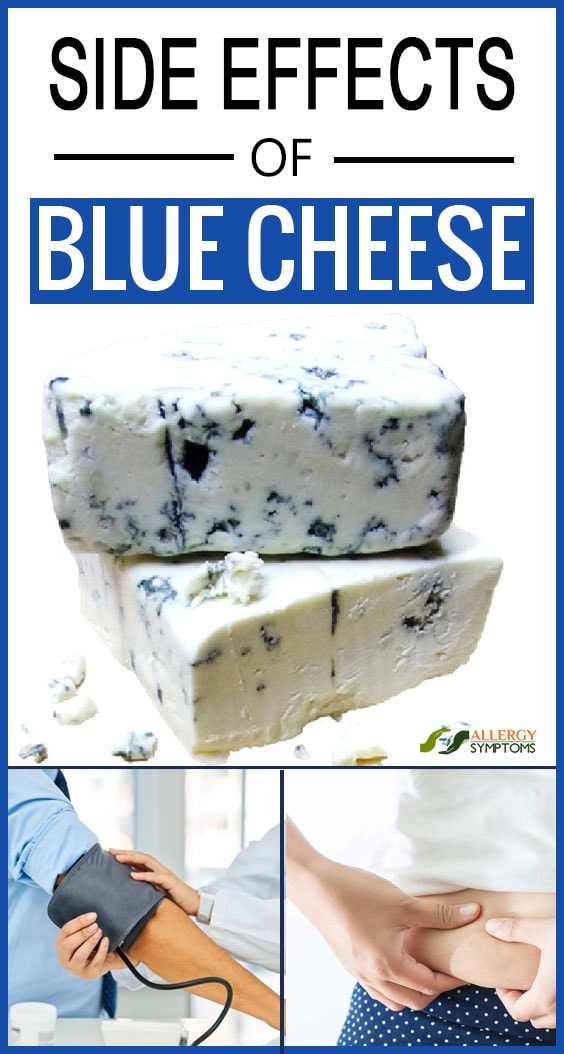Since its name is blue cheese many people assume that it must be blue in color, however, it is, in fact, is in off – white color as compare to other cheese. It is used to give a flavor for salads and some hot recipes. However, just like every other food item, it also contains unhealthy substances.
Blue cheese food allergy is very common in people. Blue cheese mostly contains two highly allergic, which are milk and mold. These two substances lead to inflammation, which causes a problem in the body. If you over-feed blue cheese then you might face these negative side effects.
1.Leads to Weight Gain
Blue cheese has a high-calorie density, which leads to weight gain. With each serving, you will intake a high number of calories that is seriously not good for your body. To control your weight gain switch to low-fat cheese as it is much better than blue cheese or regular cheese.
2.Increase your Cholesterol
Just like regular cheese, blue cheese also provides saturated fat, which increases your cholesterol. A healthy person should intake only 25% calories daily, saturated fats in the form of fatty meals, coconut oil, and full-fat cheese increase the intake limit. According to a study, less than or only 7% of calories should come from saturated fats.
Also Read : Blue Cheese Allergy
3.Other problems like High Blood Pressure
Blue cheese gives approximately 390 mg of sodium, which can lead to higher blood pressure. For a healthy lifestyle, one must not intake more than 2200-2300mg of sodium in their daily lifestyle. High sodium food makes it difficult for a person to control his or her blood pressure.
According to a study, dairy products such as milk and yogurt are better for high blood pressure patient because it contains more potassium rather than sodium. In addition, the sodium quantity of these two-food items is lower than blue cheese.
4.Insufficient take of Calcium
Choosing blue cheese over regular cheese can lead toa lack of calcium in your body. It is because blue cheese has less density of calcium. A small amount of blue cheese has approximately 150mg calcium and around 100 calories. As we, all know that calcium is really an important mineral for strong bones.
5.How to treat blue cheese allergy
The best way to treat blue cheese allergy symptoms is to consult your doctor for the right medication and avoid the intake of any dairy product for at least 8-10 days.
Toxics available in blue cheese may lead to respiratory problems. Therefore, keep these pointers in mind before adding blue cheese into your diet.
- Limit your intake of blue cheese
- Check the expiration and manufacturing date before buying the packed blue cheese
- Regularly examine your weight
- Add low-fat cheese in your diet
The Bottom Line
Blue cheese may have some health benefits however; blue cheese contains more health problems. Therefore, it is better safe to be sorry, do not crave into your food mood swings, and try to maintain a healthy diet and live a healthy life.


